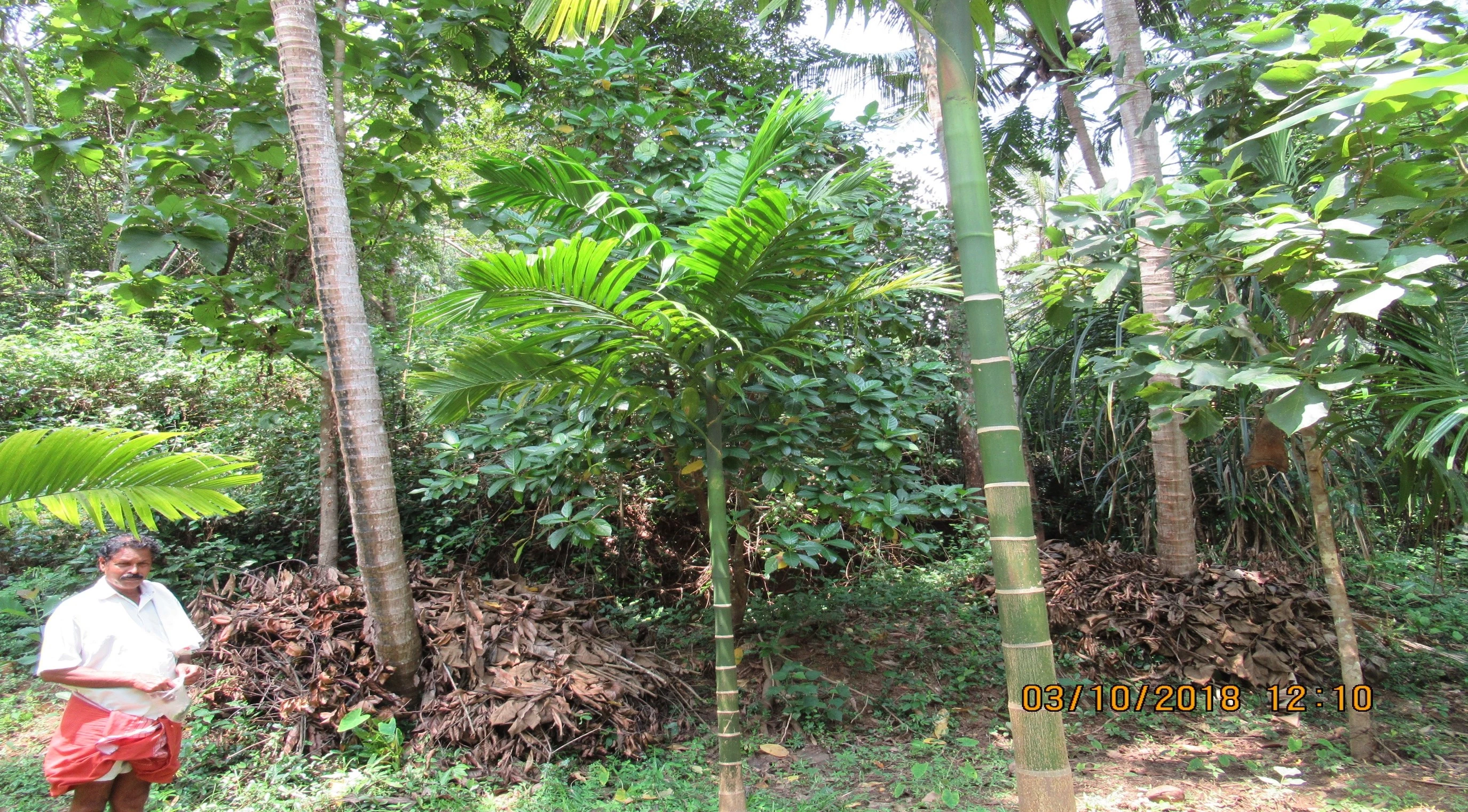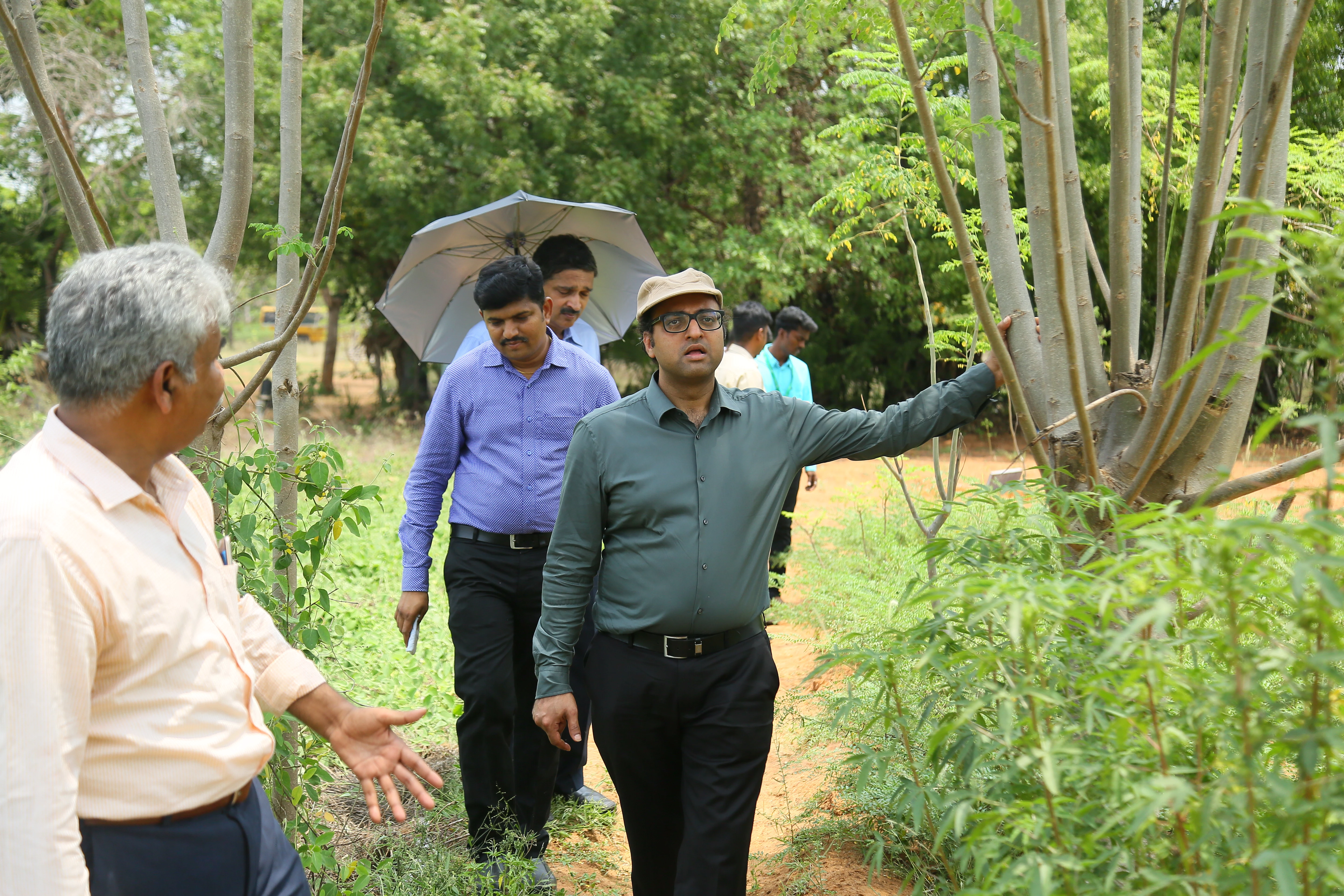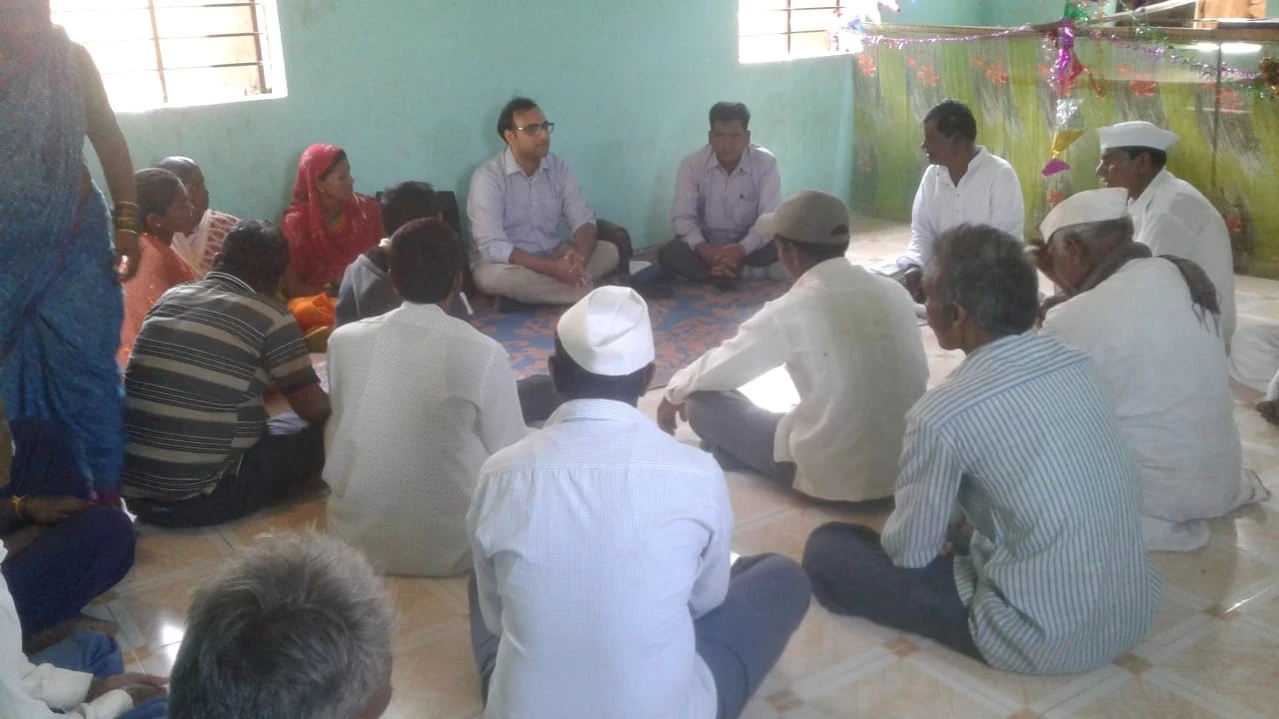Indian NaturaYuva is on a mission to grow commercially medicinal and aromatic plants
Indian company NaturaYuva transforms conventional farms on degraded land into organic agroforestry farms to grow high-quality medicinal and aromatic plants. Arko Chatterjee saw a great market opportunity while working as a senior commercial executive of one of the world’s largest agronomic companies. He shares with us his many reasons for founding NaturaYuva.
Heading up business development, commercial operations and planning for the Europe, the Middle East, Central Asia and Africa regions of Syngenta, a world leading supplier of agricultural inputs, Arko Chatterjee was in charge of growing its multi-billion business.
There was one activity within the huge corporation that caught his particular interest: direct sales to farmers. “The traditional model in the agricultural sector is to sell seeds, fertilizer, pesticides and so on to wholesalers and to the large agricultural companies,” Chatterjee recalls.
“The farms in Brazil, Argentina, the US, Russia and Ukraine have 1,500 to 10,000 hectares. However, 85% of all farmers in the world are smallholders. They are not the focus of these large agronomic companies whatever they say,” says the NaturaYuva founder.
For companies like Bayer, Cargill or Syngenta it is also all about cash crops, such as corn, cereals, soybean or coffee. “And definitely none of them focus on the quality aspects of medicinal and aromatic plants or biodiversity and sustainability aspects in its truest sense,” says Chatterje.

Market opportunity for growing medicinal and aromatic plants
Chatterjee saw firsthand how multinational agronomic companies are not serving the market of medicinal and aromatic plants. This is, however, a fast-growing market now worth some 100 billion dollars driven by increased demand by food, beverages, cosmetics and pharmaceutical companies.
Their demand for these plants is putting pressure on forests, signals Chatterjee. “An increasing number of medicinal and aromatic plants are disappearing because of a loss of biodiversity. Many of these plants are harvested from the wild, often unsustainably,” he says. “We need to systematically conserve these plants and bring them under cultivation by smallholder farmers, without endangering their food security.”
By the end of 2016, Chatterjee started exploring how he could create an integrated supply chain for traceable, organic natural plant ingredients. From India directly to customers in Europe. While at the same time supporting and transforming smallholder farmers to agroforestry farming.
Two years later, together with his wife and co-founder Malabika, he founded NaturaYuva. “The name combines the words nature and yuva which mean youth in Sanskrit,” says Chatterjee. “The name stands for nurturing nature into its blossoming youth. It alludes to the rejuvenation of biodiversity and bringing back the traditional art of tribal farming into mainstream agriculture.”
NaturaYuva has now 15 employees and two organic processing units in the Madurai area of Tamil Nadu, a state in South India where both Western and Eastern ghats (mountain ranges) converge; it is a biodiversity hotspot for a lot of aromatic and medicinal plants.
And most importantly, the company has a network of more than 500 farmers, growing for example special varieties of turmeric, ginger, and herbs like moringa oleifera, known as the ‘miracle tree’ because its leaves, bark, juice and so on contain proteins, vitamins and several medicinal applications.
To date, it has helped planting over 15,000 trees, turning degraded land into biodiversity-rich forests.

NaturaYuva is the ‘all services hub’ between growers and end-customers
The company, with the help of its uniquely skilled staff, takes an holistic approach to achieving its mission. It supports farmers who want to convert toward organic-certified farming of MAPS from advance finance and soil measurements to technical support on certification and documentation and post-harvest services. And everything in between such as supplying organic agronomic inputs, training in sustainable agroforestry, and agronomic advice based on soil and weather data.
The company, which has identified over 200 plant species that it could grow commercially, buys the produce directly from the farmers at a guaranteed price and takes care of the warehousing and processing of the produce. It sells the processed ingredients directly to the end-user. “At the moment, this is largely the food industry. For example, beverage infusion and food supplements,” says Chatterjee. “We cut out all the middlemen.”
Partnership with DFCD
With support of the DFCD, NaturaYuva is developing a proposal to set up a new cluster of 300 growers in the rain-shadow belts of Virudhanagar and Ramnad districts in the state of Tamil Nadu in South India. Now still in its first stages, the project should ultimately result in a EUR 5 to 7 million loan application to the DFCD to help finance building all of the infrastructure needed: irrigation systems, warehouses, data collection, and processing facilities.
Chatterjee is very excited about the partnership because, “We have a shared purpose. WWF and the DFCD have a wealth of knowledge and methodologies. It allows us to learn quicky and adapt the right practices in the right region, but also to implement processes like a grievance mechanism, bringing wage parity for women workers or how to best structure the financial solution for growers.”
The company is also investing in its own research and development facilities to contribute to the conservation of MAPs. It has set up its first agroforestry research and development station.

High ambitions
From a wise priest Chatterjee learned ‘never set a limiting target’. Nevertheless, he has some goals to guide the company. It aims to double farmers’ income in three years in its system and improve biodiversity in all these farms.
NaturaYuva’s purpose is to ultimately convert 100,000 hectares of degraded land into organic agroforestry farms, conserve 3,500+ medicinal and aromatic plants across the globe, and develop 50+ new novel ingredients.
“Our team members have been fighting the odds and have overcome serious challenges on the ground to lay the founding steps of our mission brick by brick,” says Chatterjee. “This is their vision and hope to build this impact-driven company to serve smallholder farmers and bring quality natural ingredients to consumers around the globe.”
About DFCD
The DFCD enables private sector investment in projects aimed at climate adaptation and mitigation in developing countries. The Dutch Ministry of Foreign Affairs has made available € 160 million to increase the resilience of communities and ecosystems most vulnerable to climate change. The DFCD is managed by a pioneering consortium of Climate Fund Managers (CFM), Worldwide Fund for Nature Netherlands (WWF-NL) and SNV, led by the Dutch Entrepreneurial Development Bank, FMO.

